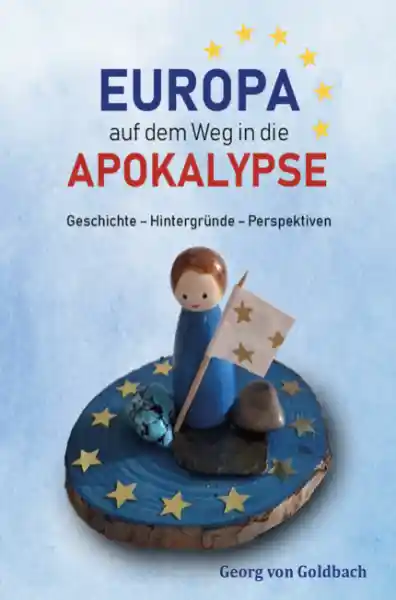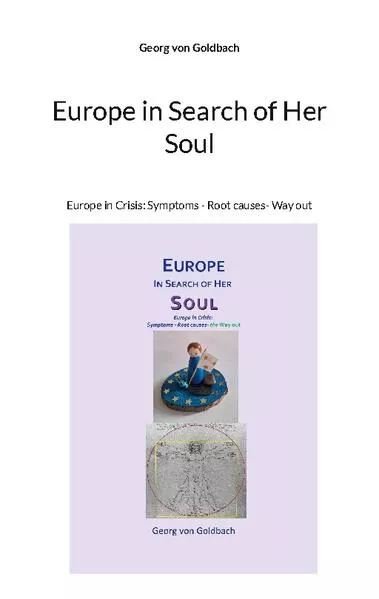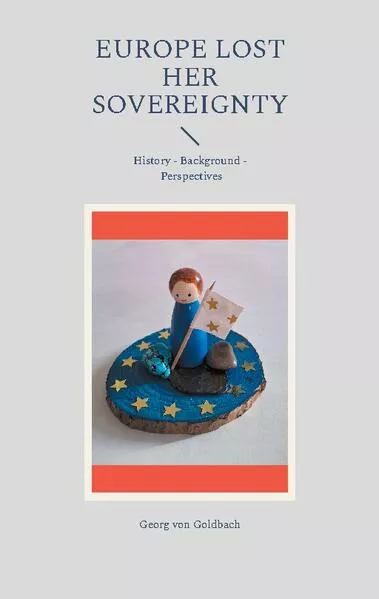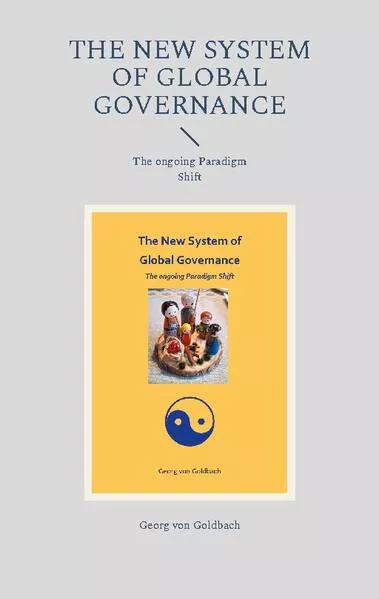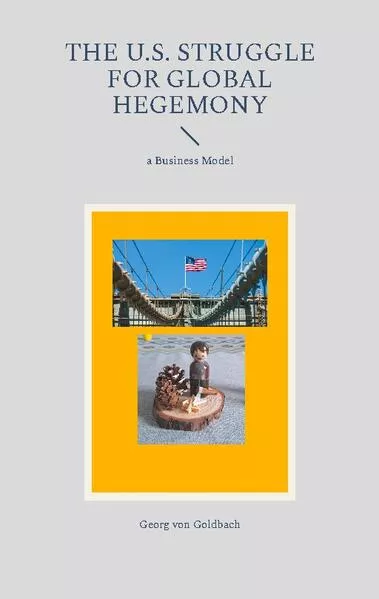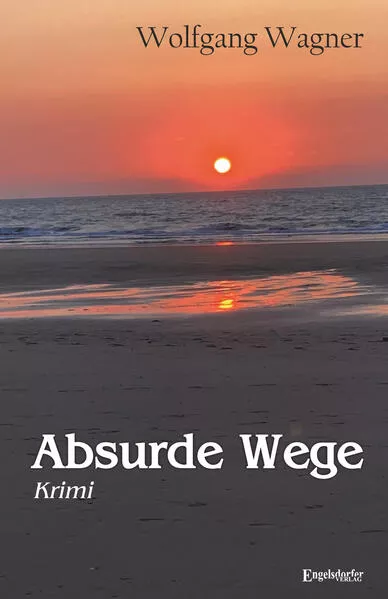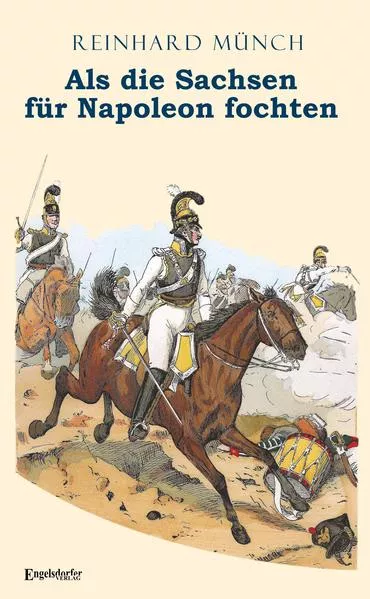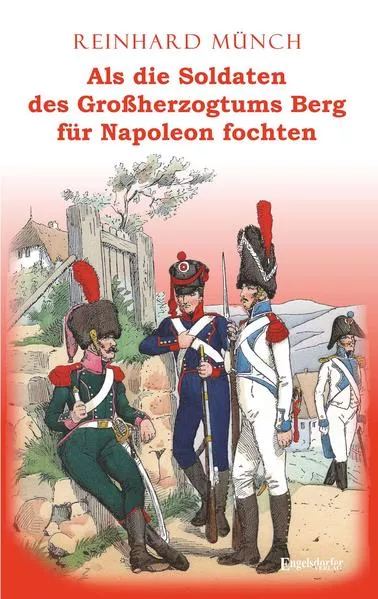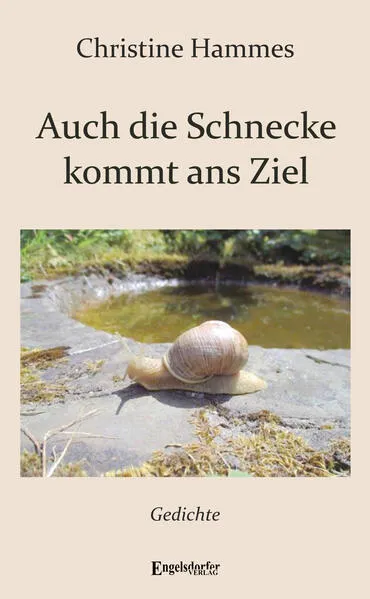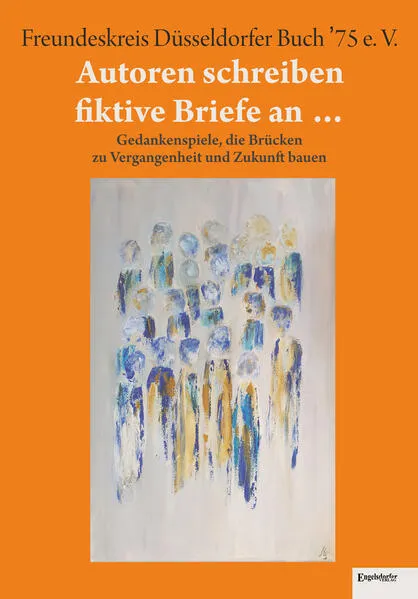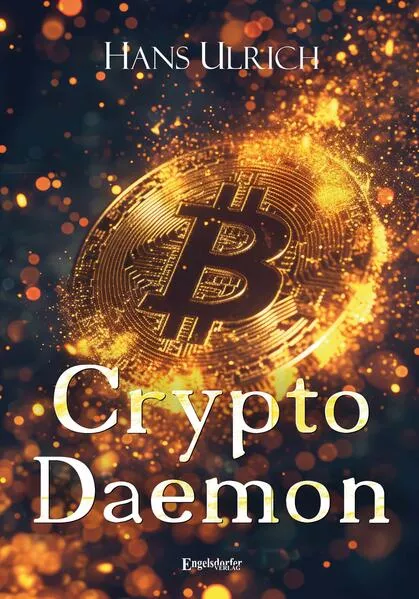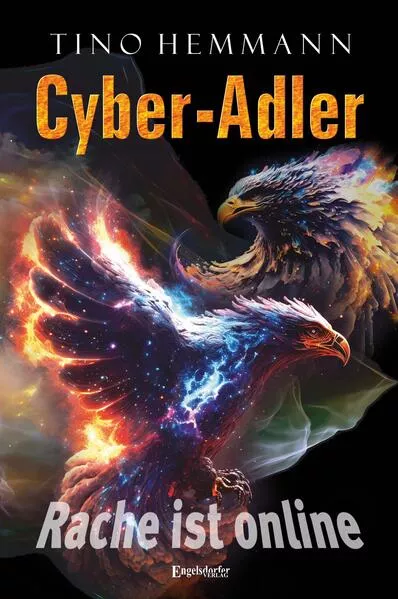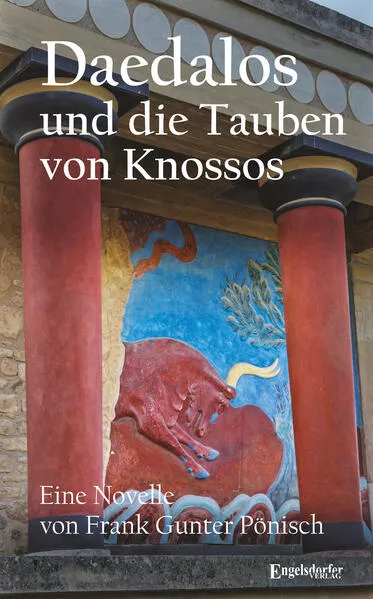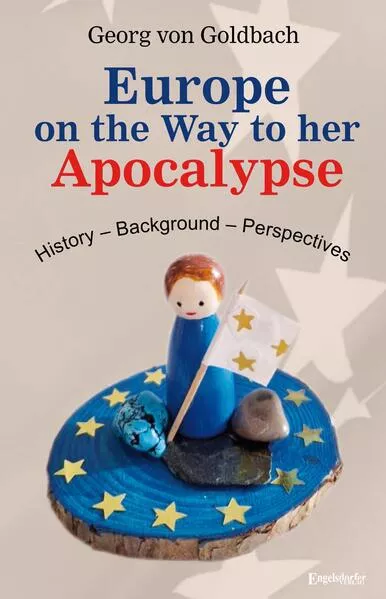
Georg von Goldbach
Europe on the Way to her Apocalypse
- History – Background – Perspectives
ISBN: 978-3-969-40854-4
482 Seiten | € 22.00
Buch [Taschenbuch]
Erscheinungsdatum:
19.07.2024
Politik
Georg von Goldbach
Europe on the Way to her Apocalypse
History – Background – Perspectives
Description: Content of the Book:
In the threshold year of 1919, only a few people might have had a foreshadowing feeling concerning the importance of the political decisions taken after the First World War for the future coexistence of the nations on our planet.
After the end of the British Empire, the European monarchies and the classical bourgeoisie, the age of democracies, globalization and US hegemony was heralded. Even if people's lives, on a small and large scale, do not run according to a plan, it is astonishing to see how a red thread runs through the history of mankind over the last hundred years.
However, the book does not stop there, but shows ways in which geopolitics and contemporary history may once again be actively shaped in the future by a united Europe. This will require saying goodbye to the previous geopolitical paradigm that has limited Europe’s role to that of a subordinate partner of US interests and within NATO. The EU started as a peacemaker. However, the EU and her member states have since become increasingly involved in wars. At the same time, the EU has played the role of a junior partner to the US and has not grown up to become a sovereign and formative actor on the geopolitical stage.
Obviously, we have reached a bifurcation point in Europe’s history. Europe must now initiate the overdue paradigm shift in order to become an independent actor in geopolitics. The previous linear solutions, in line with US and NATO interests, must be brought to an end in European politics. The book provides convincing examples of successful paradigm shifts at the international level.
A new self-confident image of Europe is the prerequisite. This requires determination and a political will to build up a new self-confidence to finally reposition Europe and the EU as sovereign and independent actors in the geopolitical arena.
In the threshold year of 1919, only a few people might have had a foreshadowing feeling concerning the importance of the political decisions taken after the First World War for the future coexistence of the nations on our planet.
After the end of the British Empire, the European monarchies and the classical bourgeoisie, the age of democracies, globalization and US hegemony was heralded. Even if people's lives, on a small and large scale, do not run according to a plan, it is astonishing to see how a red thread runs through the history of mankind over the last hundred years.
However, the book does not stop there, but shows ways in which geopolitics and contemporary history may once again be actively shaped in the future by a united Europe. This will require saying goodbye to the previous geopolitical paradigm that has limited Europe’s role to that of a subordinate partner of US interests and within NATO. The EU started as a peacemaker. However, the EU and her member states have since become increasingly involved in wars. At the same time, the EU has played the role of a junior partner to the US and has not grown up to become a sovereign and formative actor on the geopolitical stage.
Obviously, we have reached a bifurcation point in Europe’s history. Europe must now initiate the overdue paradigm shift in order to become an independent actor in geopolitics. The previous linear solutions, in line with US and NATO interests, must be brought to an end in European politics. The book provides convincing examples of successful paradigm shifts at the international level.
A new self-confident image of Europe is the prerequisite. This requires determination and a political will to build up a new self-confidence to finally reposition Europe and the EU as sovereign and independent actors in the geopolitical arena.
Unterstütze den lokalen Buchhandel
Nutze die PLZ-Suche um einen Buchhändler in Deiner Nähe zu finden.
Bestelle dieses Buch im Internet
| Veröffentlichung: | 19.07.2024 |
| Höhe/Breite/Gewicht | H 19 cm / B 12 cm / 404 g |
| Seiten | 482 |
| Art des Mediums | Buch [Taschenbuch] |
| Preis DE | EUR 22.00 |
| Preis AT | EUR 22.70 |
| Auflage | 1. Auflage |
| ISBN-13 | 978-3-969-40854-4 |
| ISBN-10 | 3969408547 |
Über den Autor
Biographical information about the authorA characteristic feature of Georg von Goldbach's life is probably this polarity between his firm roots in tradition and family on the one hand, and his great geographical and intellectual mobility on the other. Throughout his life, he maintained his center in the Allgäu-Swabian homeland, even during his various studies in Munich, Berlin, Paris and Boston, which he completed with two academic master's degrees and a PhD. This also applies during his professional career from 1983 to 2023, when he worked as a political advisor and management consultant in more than 50 countries on 4 continents, always keeping the center of his life in his birthplace. Just being Swabian or German was, however, not sufficient for him. Becoming a citizen of the world became his self-determination and the purpose of his life.
This is perhaps a direct reference to the central message of this book, which calls for a conscious recognition of the historical, geographical, and cultural roots of peoples and nations. The strength that such roots confer is a crucial foundation for leaving a positive impact during the storms and challenges of geopolitics.
Georg von Goldbach's academic education is based on the three pillarsof political economy, social anthropology and consulting for organizational development and international strategic reform processes. This also indicates the perspectives taken for his analysis of international economic and political events, as well as related processes. Social anthropology may well be seen as the bridging link, because it presumes that the human being in the context of the living environment has to be put at the center of all considerations. The Swabian poet and thinker Bert Brecht put it rightly when he said: Man is Man's fate. If we want to understand this word deeply and also take it seriously, then we embark directly on the common path to freedom and peace, which this book also wants to point out to humanity.
Diesen Artikel teilen
0 Kommentar zu diesem Buch
... weitere Publikationen von von Goldbach, Georg
.... weitere Publikationen von Engelsdorfer Verlag
Leserunde
Tödliches Schottland: Neun fesselnde Kurzgeschichten
Bewerbungsfrist bis zum: 11.03.2026



